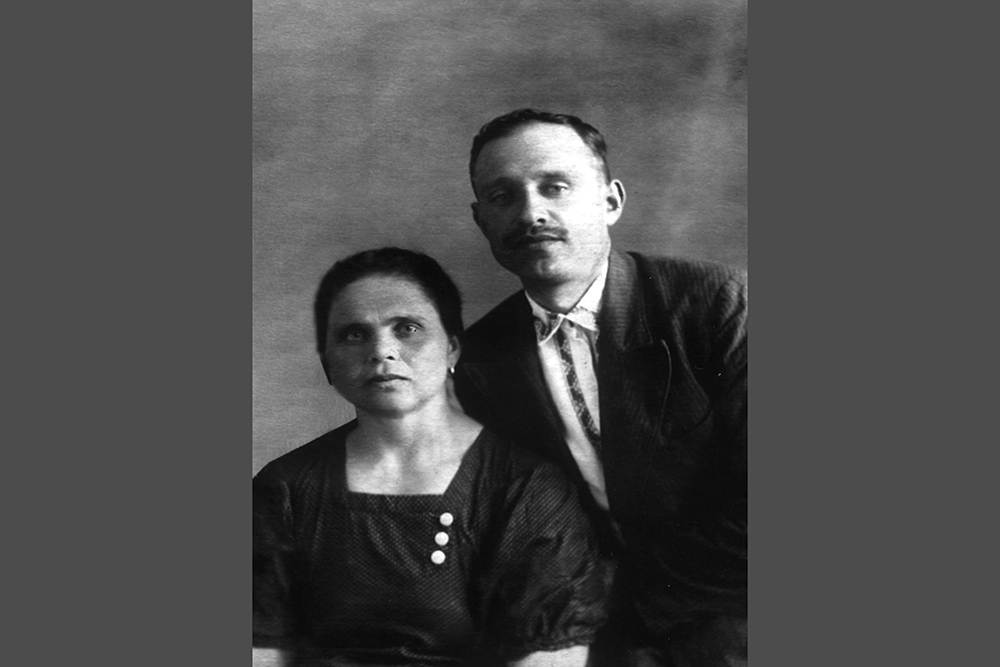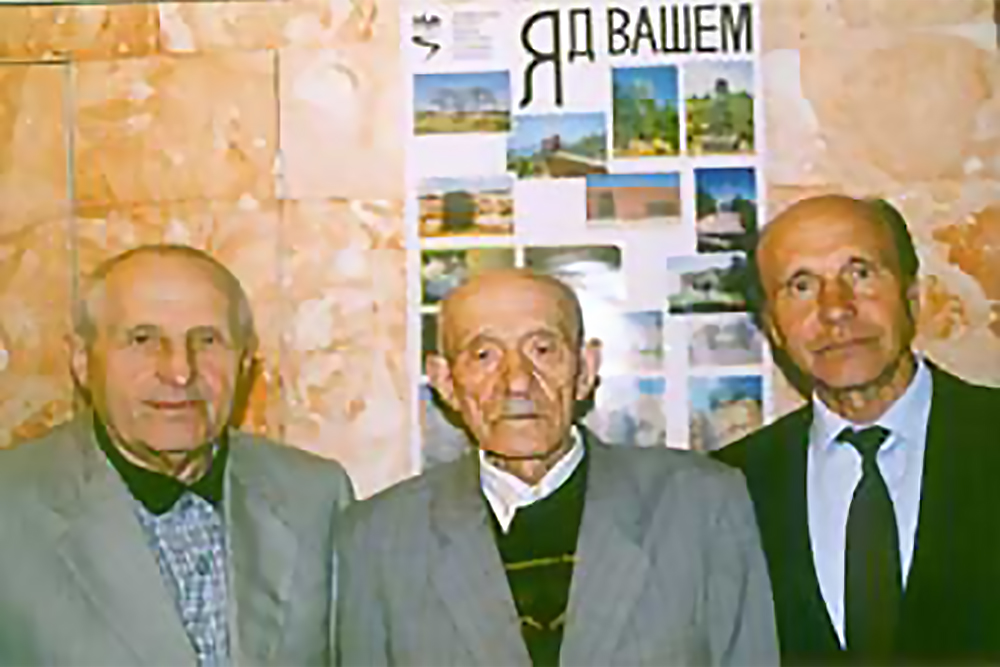Bank of Portraits / Harmash Anton and Daria

Harmash Anton and Daria
Kharkiv has always had a tradition of interethnic and interfaith tolerance. Since the founding of the city, Ukrainians and Russians have lived here peacefully; at the beginning of the 18th century Greeks and Tatars came here, in its second half – Jews. In the 19th century rapid economic development attracted new immigrants: Germans, Poles, people from the Caucasus. Kharkiv was the only city that did not suffer from the Jewish pogroms that swept through the European part of the Russian Empire. Tolerance proved to be one of the factors that enabled it to become a powerful economic, intellectual and cultural center.
In the 1930s, during the forced collectivization, peasants Anton and Daria Harmash and their children had to leave the village and moved to Kharkiv. The husband began working as a security guard, and the wife ran the household and raised the children. Among their new neighbors were Samuil Bluvband, a Jew, with his Ukrainian wife, Olena (maiden name Uzhakina), and their son Mykhailo, who was six years old in 1941.
After Nazi Germany's attack on the USSR, Samuil went to the front, and his family remained in occupied Kharkiv. On December 14, an order appeared on the streets of the city for the mandatory relocation of Jews to the territory of the former tractor plant – to the suburbs.
Olena decided to find out from the city council whether the order concerned her and her son, and received the answer that it was about both Jews and members of their families. However, the woman decided not to hurry with the relocation.
Leaving Mykhailo with the Harmash family, she went to the village for food that became increasingly difficult to buy in the city. Anton and Daria decided not to show the boy: they did not let him out of the gate. When it became clear that the Germans were persecuting and exterminating the Jews, the Harmash family took care of Mykhailo's rescue.
He spent most of the day in the basement with Kateryna, the couple's 16-year-old daughter, who was hiding from being forced to work in Germany.
During the occupation, Anton Harmash and his son Mykola worked in a coal storage, but their salaries were not enough for food, so the family suffered of hunger. Olena, Mykhailo's mother, brought them everything she exchanged in the villages, until one day, in the spring of 1942, when she was shot dead by a German patrol: the woman was in the street during the curfew. Mykhailo remained in the family of Harmash until the liberation of Kharkiv in August 1943. Then he was taken away by his mother's sister, and in 1945 the boy moved to his father, who had returned from the front.
For many years the boy and his rescuers lost each other, although they continued to live in the same city. In 2000, Mykhailo Bluvband met again Mykola – the son of Anton and Daria.
On July 23, 2000, Yad Vashem awarded Anton and Daria Harmash the title of Righteous Among the Nations.

Halyna Ostapenko
Kyiv
Tavrida National V.I. Vernadsky University
-
fingerprintArtefacts
-
theatersVideo
-
subjectLibrary

